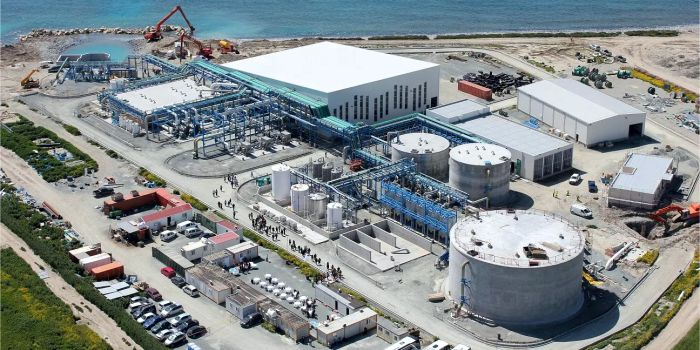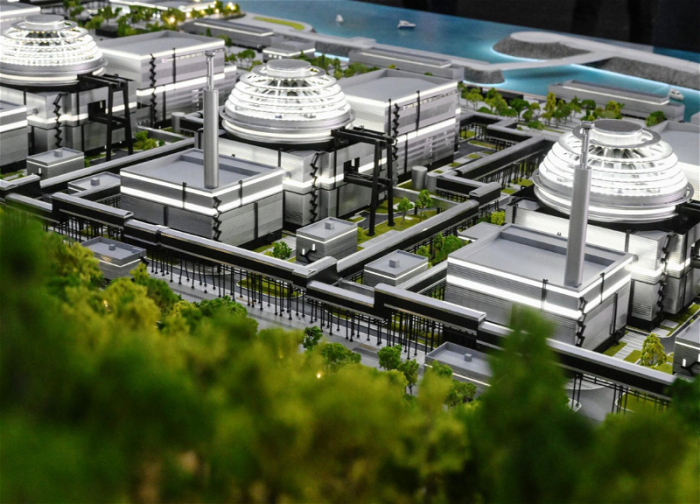Ramiz Kalbiyev, associate professor, head of the department of energy efficiency and green energy at Azerbaijan Technical University explained in his interview to AzVision.az that there are several practices of desalinating sea water, but all of them require huge quantities of energy. The renewable sources of energy, such as solar, are often employed. Traditional energy sources, even Thermal Power Plants (TPP) can also be put to use. At the same time, TPPs are considered inefficient due to their substantial damage to the environment. Nuclear Power Plants, on the other hand, can be a viable option.
‘NPPs are safer for the environment. The TPPs emit up to half a kilogram of CO2 (carbon dioxide) into the air per kilowatt/hour of energy. Compared to renewable energy sources, such as solar power plants, the NPPs boast their uninterrupted operation mode. The energy load on the grid is higher during the day, but it must still work continuously. Therefore, we can exploit the produced energy to desalinate sea water when the load on the grid is lower.’
- What about the costs? Aren’t they quite expensive?
‘Building an NPP does imply more costs compared to other power plants. But the costs of operation are low. 1 gram of radioactive material can produce up to 22 thousand kilowatt hours of energy, while the stations operating on traditional energy sources require at least 3 tons of fuel to produce the same quantities.

France has the largest number of NPPs and produces the largest quantities of electricity through them. They can use the produced energy to desalinate the sea water as it is a coastal country. Although Israel boasts a rather developed nuclear industry, they prefer employing the osmosis method to desalinate sea water. One of the criteria to consider is the direction the country chooses in their economy, meaning they try to take advantage of the available raw materials and advanced technologies.’
- We have a sea, but no nuclear energy. What should we do?
‘We were already making plans to build an NPP, even allocated a site in Hajigabul. The project was shut down after the Chernobyl incident. The NPPs are, without an inkling of a doubt, the most efficient instrument for seawater desalination. Establishing and operating a nuclear plant in Azerbaijan would also stimulate the development of the industry and staff training in the country. Russian Rosatom has been proposing to invest and build one here, just like they have done for Türkiye.’

- The IAEA is somewhat reluctant to have small countries like Azerbaijan build an NPP, while Russia is offering us to build one. Is this a matter between two states or must we also consider the stances of international organizations?
‘We must procure a license to build one. We have the Türkiye practice to study. NPPs have degrees of safety and safety is ensured according to those standards. They even send an export to support the initial stage. Russia declares that they are ready to take responsibility in Azerbaijan from foundation to commissioning for operation and for technical safety.
AzVision.az
More about:
















































